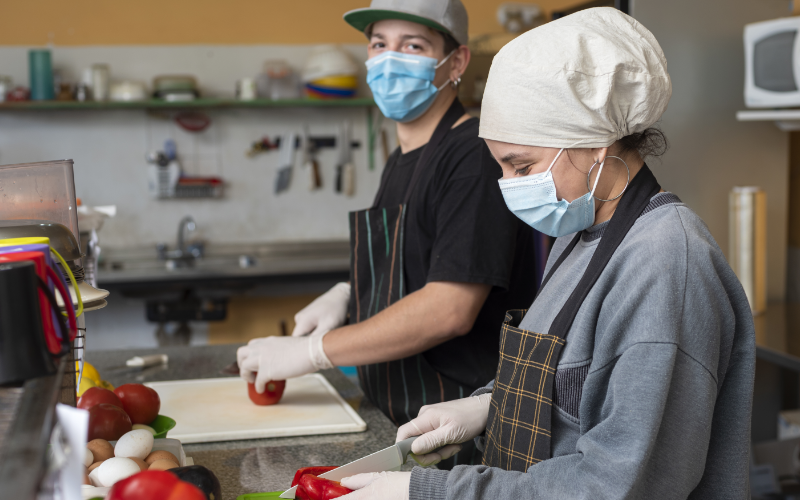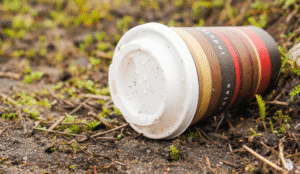
Institutional and industrial catering services face unique challenges that require rigorous health and safety practices. With diverse settings and large-scale food production, ensuring the safety of staff and customers is essential. Here, we explore the top health and safety priorities every institutional caterer must consider.
Comprehensive Staff Training
Effective health and safety in institutional catering begins with a workforce understanding the importance of hygiene and safe food handling. Training must go beyond basic food safety, including emergency procedures, equipment use, and sanitation practices. Staff should be educated on preventing cross-contamination and managing allergens, especially in large-scale food production settings. Regular refresher courses and updates on the latest safety standards keep everyone well-informed and prepared to uphold safety protocols.
Stringent Food Handling Procedures
Handling large volumes of food for industrial catering services calls for strict adherence to food safety guidelines. This includes monitoring food temperature during preparation, cooking, and storage to prevent bacterial growth. All foods should be stored according to their specific requirements, and any perishable items must be labelled with expiration dates and rotated regularly. Institutional catering providers can minimise the risks of foodborne illnesses by implementing stringent food handling procedures.
Maintaining High Standards of Kitchen Cleanliness
Cleanliness is fundamental to preventing contamination in any catering environment. To meet industry standards, regular cleaning schedules for all surfaces, utensils, and equipment must be maintained. Industrial catering services benefit from assigning specific cleaning responsibilities to staff members and conducting routine checks to ensure compliance. Additionally, high-touch surfaces should be sanitised more frequently, particularly during peak periods, to maintain an optimal level of hygiene.
Allergen Awareness and Management
Managing allergens effectively is crucial in institutional catering, where various ingredients are used. Identifying and labelling allergens in dishes is essential, and all staff should be trained in allergen awareness. Establishing separate preparation areas for allergen-free meals, particularly in industrial catering services, minimises cross-contact risks. Clear labelling and strict ingredient tracking ensure that customers are well-informed about allergens, reducing the risk of allergic reactions.
Regular Equipment Maintenance and Inspection
Industrial catering services rely on high-performance equipment, which requires regular inspection and maintenance to ensure safe operation. Faulty equipment can lead to accidents and may compromise food quality and safety. Institutional caterers should implement routine checks for kitchen appliances, refrigeration units, and ventilation systems. Keeping all equipment in excellent working order not only enhances safety but also reduces downtime, ensuring a smooth workflow in the kitchen.
Clear Waste Management Protocols
Efficient waste management is a priority in institutional catering, where large quantities of food and packaging waste are generated. Proper waste disposal reduces the risk of pest infestations and helps maintain a hygienic environment. Waste should be sorted into recyclable, compostable, and general categories, with designated bins placed throughout the kitchen. Regular waste collection and disposal prevent odours and contribute to maintaining a clean workspace. Additionally, staff training on correct waste disposal practices ensures compliance with environmental standards.
Personal Protective Equipment (PPE) Compliance
Staff safety is paramount in any industrial catering setting, and PPE plays a crucial role in reducing hazards. Institutional catering services should ensure staff wear appropriate PPE, including gloves, aprons, hairnets, and non-slip shoes. PPE protects staff from injuries, such as burns and cuts, and helps prevent food contamination. Regular checks are needed to ensure all staff comply with PPE guidelines, foster a safety culture, and reduce workplace incidents.
Emergency Preparedness and Incident Response
Given the scale and intensity of institutional catering, emergency preparedness is essential. This includes protocols for handling incidents like fires, equipment malfunctions, and health emergencies. Conducting fire drills and training staff on evacuation routes and emergency procedures prepares the team for unexpected situations. Additionally, equipping the kitchen with accessible first-aid kits and fire extinguishers enhances safety, enabling prompt responses to accidents or emergencies.
Monitoring and Managing Food Supply Chain Safety
A safe supply chain is essential for maintaining quality standards in institutional catering. By carefully selecting suppliers who adhere to safety and quality standards, catering providers minimise the risk of contamination at the source. Regular supplier audits ensure compliance with food safety standards. For industrial catering services, this involves monitoring the transportation and storage of ingredients to confirm they meet the necessary conditions, thus safeguarding food quality and preventing safety issues.
Emphasis on Occupational Health for Staff
Health and safety in institutional catering extend to the physical well-being of staff, particularly in industrial settings where heavy lifting, long hours, and repetitive tasks are every day. Ergonomic practices, such as lifting techniques and equipment designed to reduce strain, contribute to a safer working environment. Additionally, promoting regular breaks and hydration helps prevent fatigue-related incidents. By prioritising occupational health, institutional caterers ensure a more efficient and motivated workforce.
For more information, contact Pro*3 Catering today.




